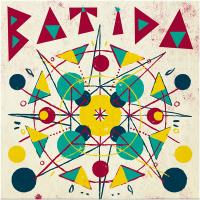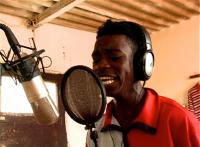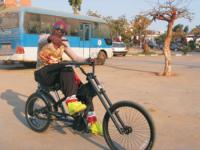kuduro
Articles tagged with kuduro
Tag Archive
- ...
- 9/11
- Africa.Cont
- Afrikanische Straße
- agronomy
- Alqueva
- Ana Paula Tavares
- António Gonga
- Architecture Biennial
- ariella aisha azoulay
- asian workers
- Bienal de S.Paulo
- Biennial – S. Tomé
- biografia
- Brazil
- British cinema
- carnivalesque protest
- cc
- Collective of Victims
- Congo
- contemporary city
- controversy
- crioulização
- Cuba
- Cultural Heritage
- cultural movement
- cultural spaces
- DAMARA INGLÊS
- David Goldblatt
- ddd
- deverbatives
- Diego Rivera
- equal rights
- escolha
- Fascist Regimes
- feminism
- gender
- gente de cor
- Germano de Almeida
- gulbenkian
- Harlem Renaissance
- in transit
- Keita mori
- Kenya
- labourers
- landscape
- Licínio Azevedo
- Lisbon
- Lost lover
- luquebano afonso
- lusitanismo
- lusophone
- man
- Marcelo Ridenti
- Maré
- migrações
- Miguel Gullander
- morality police
- morocco
- namibe desert
- occupy Wall Street
- ocupy wall street
- PAIGC
- past
- Paulo Flores
- Pedro Coquenão
- peinture
- periferias
- Politics
- pop culture
- post-coloniality
- post-memory
- postcolonialism
- postcoloniality
- racial segregation
- Regina Guimarães
- Remittances
- representações de áfrica
- RESTITUTING ARTWORKS
- Sana na N’Hada
- sandwich
- São Tomé and Príncipe
- SARS
- senegal
- sex discrimination
- sexuality
- slags
- South Africa
- South Facing
- Spain
- teatro
- Territories
- the great migration
- theo gould
- todassabemos
- Turia El Glaoui
- Violence against civilians in nigeria
- Visual Cultura
- Vital Matter
- “Pessoa
Published under a Creative Commons License
 We are at the Batida workshop. A space in a garages complex in Lisbon. On the outside it’s just that. A building with nothing that distinguishes it from the others. Inside there is Pedro Coquenão, or DJ Mpula, or the man who invented Batida. Inside there, this 37-year-old Portuguese man born in Huambo (Angola), which he left with the onset of civil war, an Angolan living in Portugal since then, talks non-stop about all that Batida means. We could even say that we do not need to hear everything he is saying. The speakers release South African music. Scattered throughout the space we see a marimba, extemporary drums took out from diesel cans, Angolan beer “Cuca” bars, photos of Coquenão’s travels to Luanda, and drums that, in concert, will be illuminated from the inside as efficient do-it-yourself scenery. All this is Batida.
We are at the Batida workshop. A space in a garages complex in Lisbon. On the outside it’s just that. A building with nothing that distinguishes it from the others. Inside there is Pedro Coquenão, or DJ Mpula, or the man who invented Batida. Inside there, this 37-year-old Portuguese man born in Huambo (Angola), which he left with the onset of civil war, an Angolan living in Portugal since then, talks non-stop about all that Batida means. We could even say that we do not need to hear everything he is saying. The speakers release South African music. Scattered throughout the space we see a marimba, extemporary drums took out from diesel cans, Angolan beer “Cuca” bars, photos of Coquenão’s travels to Luanda, and drums that, in concert, will be illuminated from the inside as efficient do-it-yourself scenery. All this is Batida.  This article explores the role of Kuduro, the popular Angolan electronic music and dance style in the process of updating the national Angolan identity called angolanidade to the conditions of the new millennium.
This article explores the role of Kuduro, the popular Angolan electronic music and dance style in the process of updating the national Angolan identity called angolanidade to the conditions of the new millennium.  Kuduro sprang up Luanda's musseques (shanty towns) and spread rapidly through the Kandongueiros (street vendors or hawkers). New music appears on a daily basis, feeding Luanda's vocabulary with new expressions, new beats and new moves. This frenetic creation of urban languages plays an important role in today's Luanda, especially among the younger city dwellers.
Kuduro sprang up Luanda's musseques (shanty towns) and spread rapidly through the Kandongueiros (street vendors or hawkers). New music appears on a daily basis, feeding Luanda's vocabulary with new expressions, new beats and new moves. This frenetic creation of urban languages plays an important role in today's Luanda, especially among the younger city dwellers. 